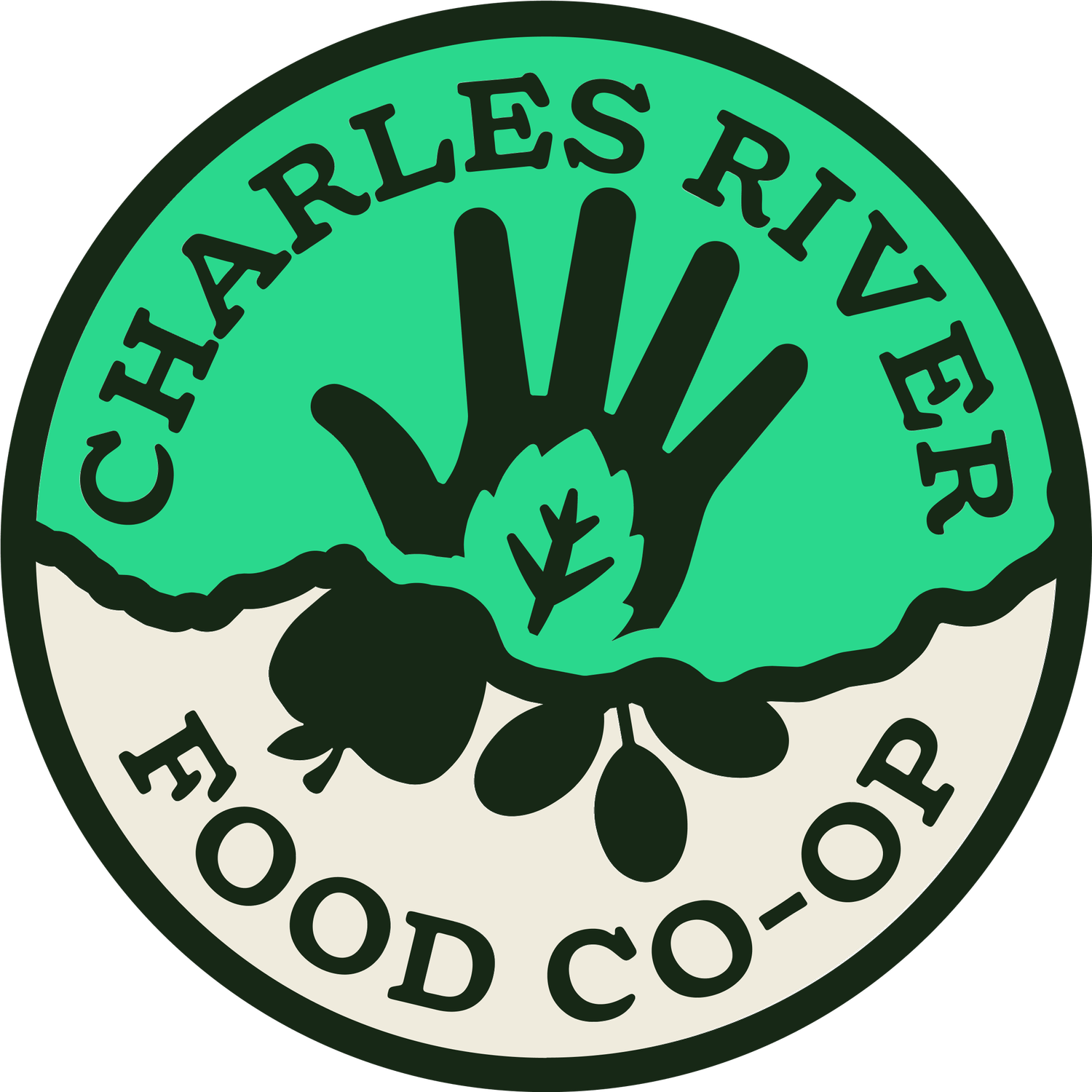Our Co-op
Since the closure of Russo’s in September 2021, community members in Watertown, Newton, and Waltham have been leading an effort to start a new food shopping option in our towns. We feel a hybrid model where both workers and consumers share in ownership of the enterprise will be able to contribute substantially to the food ecosystem west of Boston. And that is how the Charles River Food Co-op (CRFC) was born.
Over the past few years, the CRFC has been very busy making connections in our community as well as in the broader food co-op ecosystem. We have linked up with the Food Co-op Initiative who has provided us with invaluable advice and guidance as well as opportunities to participate in a national food conference called Up and Coming, a 3-day meeting where co-ops from around the country educate, inspire and connect. We also became associate members of the Neighboring Food Co-op Association, a regional group of startup and established food co-operatives throughout New England.
We have incorporated as a co-operative corporation in Massachusetts, have adopted our by-laws, and have had three annual meetings. We launched our member-owner campaign on June 15th, 2022 and have been steadily growing. As of December 2025 we have about 980 members and almost 3000 email subscribers who are joining us on this journey.
Our board and dedicated volunteers are hard at work on validating our financial viability, evaluating potential sites around the area, and engaging with the community to spread the word and increase membership. Look for us at any of a number of local events including farmers markets, earth day celebrations, and various other outdoor happenings.
You can help us write the next chapter of our story - by joining the co-op!
What is a co-op?
The co-op is a business that is 100% owned by its co-op owner on a democratic basis, with one equity share per owner. The $200 Charles River Food Co-op owner equity investment is a purchase of stock. No co-op owner can purchase more than one equity share. This makes every owner an equal shareholder with a single vote. The board of directors in a co-operative is made up of co-op owners who are elected by the ownership to oversee and lead the co-operative on behalf of the owners.
The Seven Cooperative Principles
Co-ops are based on values not unlike those we subscribe to individually, including self-responsibility, democracy, equality, honesty and social responsibility.
In addition to these common values, seven basic international principles serve as guidelines to provide a democratic structure for co-ops around the world. While adoption of these principles is not required, most co-ops choose to adopt them for their business.
1. VOLUNTARY AND OPEN MEMBERSHIP
Cooperatives are voluntary organizations, open to all people able to use its services and willing to accept the responsibilities of membership, without gender, social, racial, political or religious discrimination.
2. DEMOCRATIC MEMBER CONTROL
Cooperatives are democratic organizations controlled by their members—those who buy the goods or use the services of the cooperative—who actively participate in setting policies and making decisions.
3. MEMBERS' ECONOMIC PARTICIPATION
Members contribute equally to, and democratically control, the capital of the cooperative. This benefits members in proportion to the business they conduct with the cooperative rather than on the capital invested.
4. AUTONOMY AND INDEPENDENCE
Cooperatives are autonomous, self-help organizations controlled by their members. If the co-op enters into agreements with other organizations or raises capital from external sources, it is done so based on terms that ensure democratic control by the members and maintains the cooperative's autonomy.
5. EDUCATION, TRAINING AND INFORMATION
Cooperatives provide education and training for members, elected representatives, managers and employees so they can contribute effectively to the development of their cooperative. Members also inform the general public about the nature and benefits of cooperatives.
6. COOPERATION AMONG COOPERATIVES
Cooperatives serve their members most effectively and strengthen the cooperative movement by working together through local, national, regional and international structures.
7. CONCERN FOR COMMUNITY
While focusing on member needs, cooperatives work for the sustainable development of communities through policies and programs accepted by the members.


